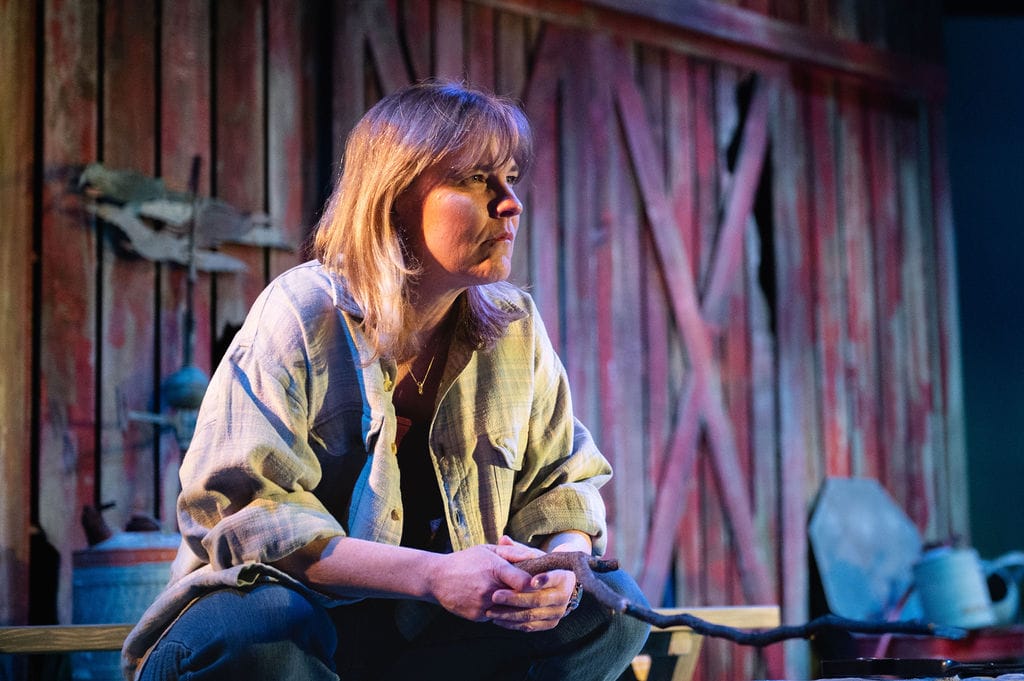On-tune delivery: "Express" at Wichita State
Impressive choreography, strong musicality, and an energetic ensemble deliver shiny stories of New York subways past.
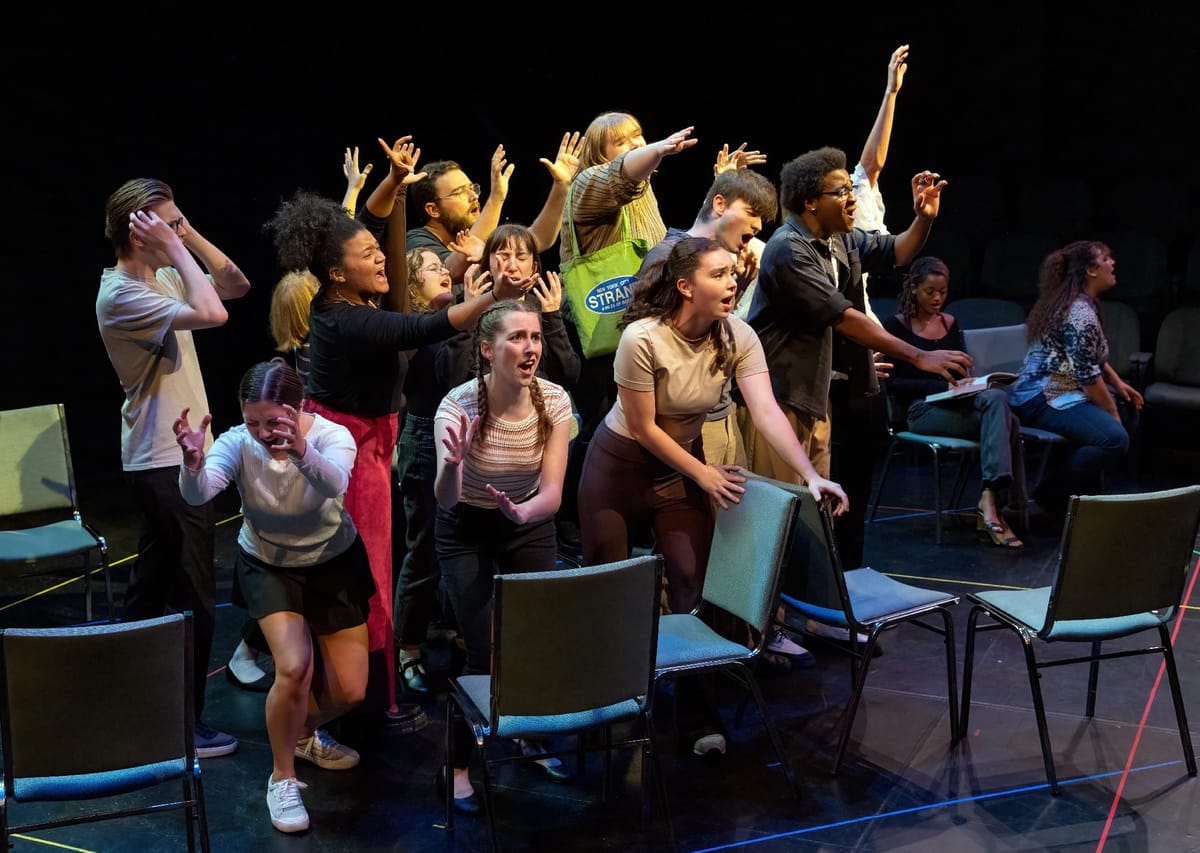
On his website, Wichita native Arri Lawton Simon suggests using this mnemonic to correctly pronounce his first name: “Arri, the faerie from the prairie.” Simon’s advice reflects a whimsical yet defiant discordance, his humor both softening and underscoring the reality of a word often used as a hateful weapon. That’s also the approach taken in the musical "Express," developed by Simon and Janine McGuire and staged in an “incubator program” at Wichita State on September 28. Its songs touch on racism, sexism, homophobia, and Islamophobia — but do so with optimism and humor.
"Express," set inside New York subway cars in 1945, 1964, 1989, and 2001, explores the (literal) journeys of the members of a single American family. The cars themselves change along with the people and the times: the “modern” ’60s car, for example, is intended solely to transport to and from the 1964 World’s Fair. The live conductor on the WWII-era car cheerily highlights the sights of the city, while the 21st-century conductor has become a garbled voice on a PA system.
The individual family members and how they relate to each other emerge gradually throughout the show. Audience members must work out how the characters in some of the stories appear in others. Why they actively participate in some stories and mostly observe (or are only spoken of) in others. Their stories feel circular rather than linear, and the subtle improvements they make as human beings are deftly woven into this well-stitched book, their evolutions entirely believable despite the brevity of the show’s 70 minutes.
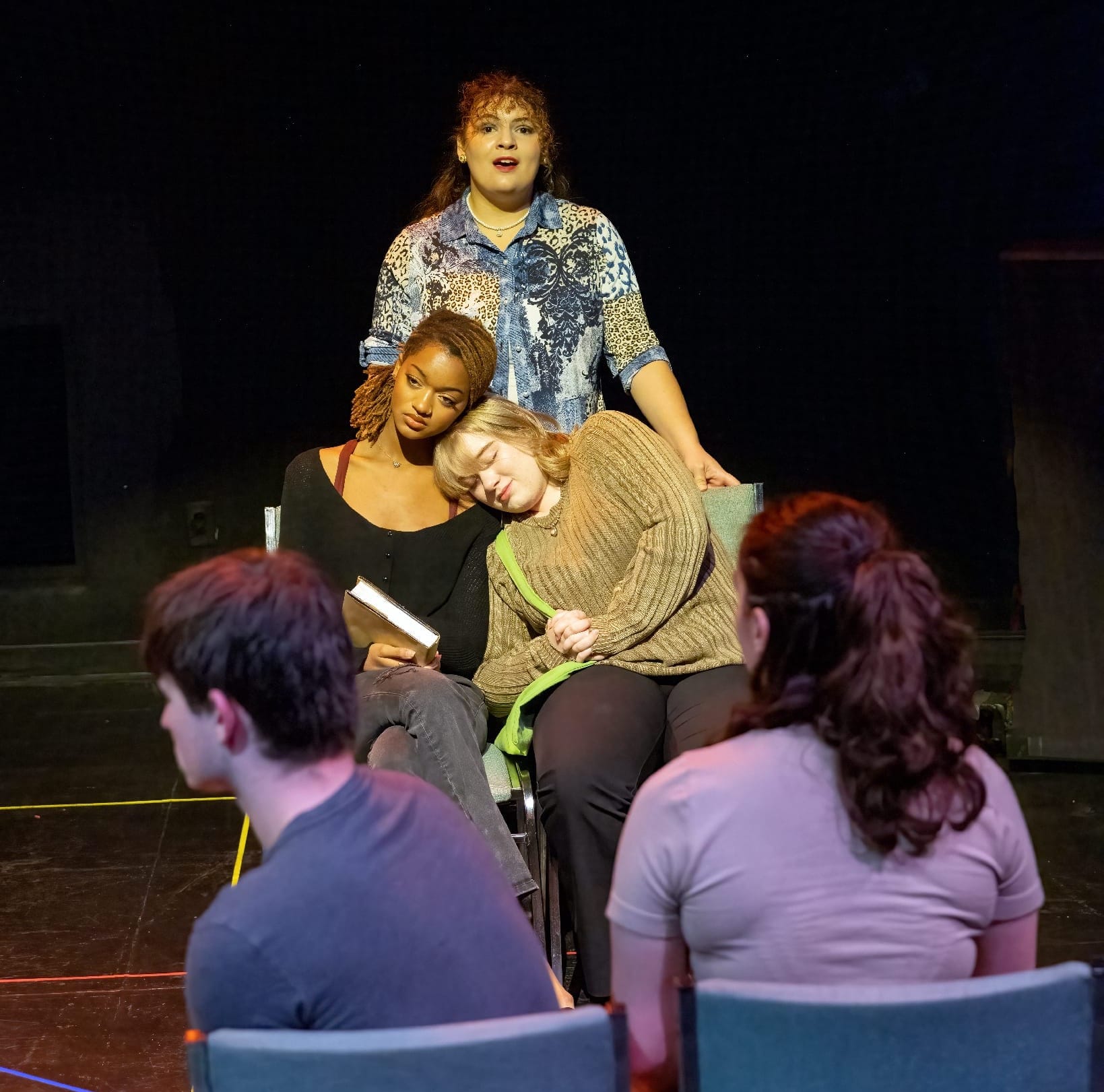
This iteration in the development of the musical came together in only about two weeks. Given that, the production — particularly its staging and musical direction — was remarkably polished. Despite uneven levels of singing skills among them, student cast members, including the ensemble and the four conductors representing the eras, uniformly gave strong acting performances and three-dimensionality in a musical that is generous with verbal scenes between numbers.
As with the singing, the songs also ranged somewhat in effectiveness. One or two aren’t quite there yet. (“Somethin’ Good To Give,” ably and energetically sung by Gracie Solas, was catchy but fell short of being the showstopper it wanted to be.) But the majority of numbers danced with vibrancy and irresistible charm.
Our free email newsletter is like having a friend who always knows what's happening
Get the scoop on Wichita’s arts & culture scene: events, news, artist opportunities, and more. Free, weekly & worth your while.
No spam. Unsubscribe anytime.
Opening scenes quickly and serviceably laid out the terms of the setting and the obligatory “this is me and my quest” song, by Joey (acted well and with great energy by Zoie Dangerfield), a young woman reluctantly visiting her mother in New York, her angst heightened by its timing only weeks after 9/11. Their subway conversation comprises the structure on which the entire show hangs.
The ensemble piece “We’ll Get There When We Get There”—led by Alyssa Watson, a confident and practiced singer and performer as Jane, Joey’s mother—sent the show into action, introducing the musical’s distinct timbre and showcasing tight chordal dissonances that perfectly matched the tight choreography, underscoring the idea that the world we were entering held many people with many stories, all worth hearing. (Note for the next round of revisions: I regretted not being given an opportunity to applaud.)
“Side by Side,” the show’s keynote song showcasing a singable tune and infectious lyrics, reminds us of our universal commonalities: “same sun, same air; we’re all just trying to get somewhere.” Although a bit Pollyanna in its examination of our world’s problems (as is, indeed, the overall show), the piece nonetheless includes sophisticated language play and a lovely, thick choral dissonance.
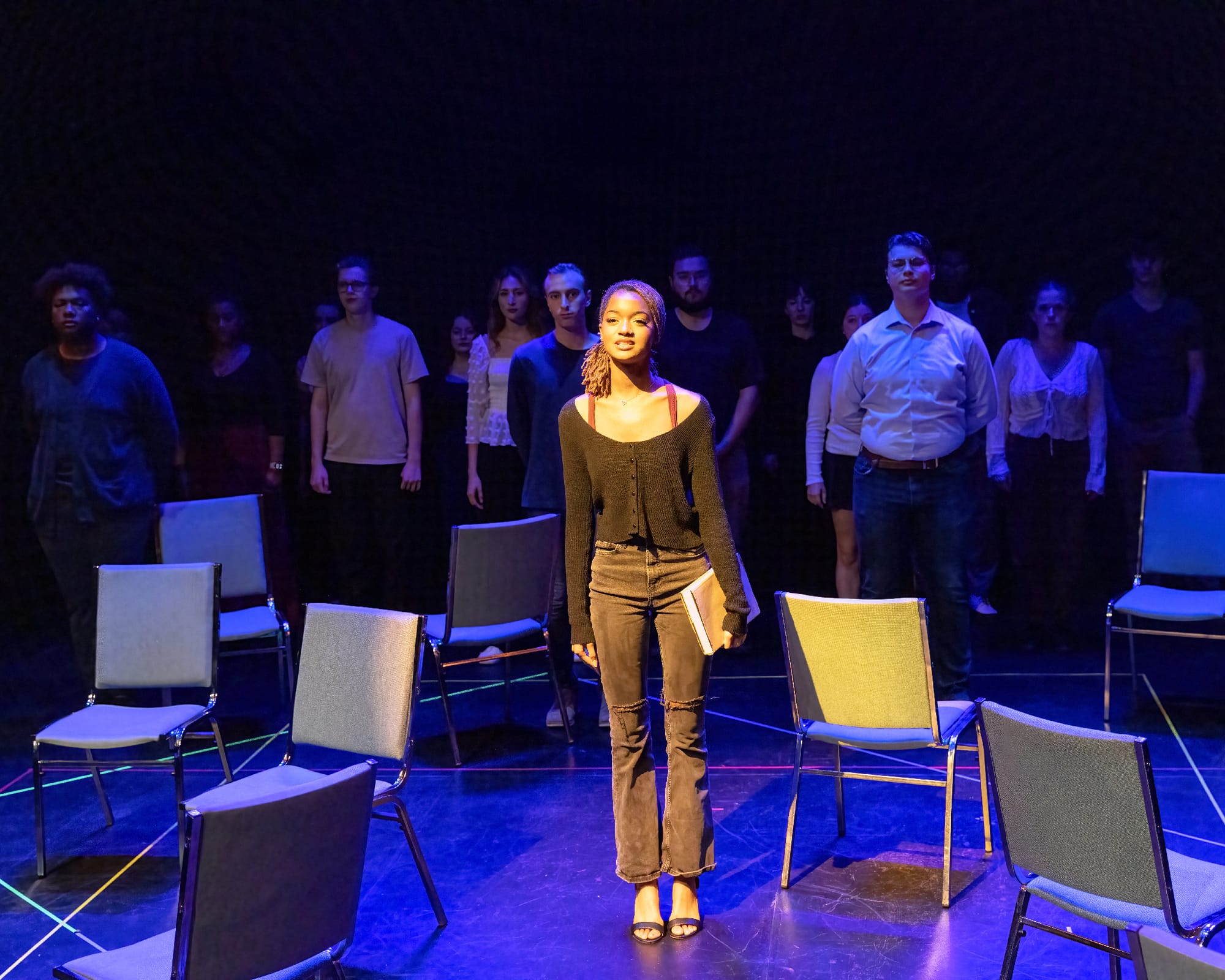
“A Missed Connection,” beautifully sung by Jacob Crabtree and Francie Robu and backed by a tight ensemble, is a 40s-style doo-wah piece, swingy and delightful. It’s followed by showcases for each of the couple: for Joe and Crabtree’s beautiful tenor, “You Never Know,” and, for Kitty, “How I Would Live,” underscoring Robu’s out-of-the-ballpark singing range and depth, just in case you missed it in the duet.
Many of the songs themselves adroitly serve two functions: they entertain, but they also depict plot conflicts and character qualities with great elan. For example, 1964’s “Train to the Future” juxtaposes stories that suggest that turbulent decade’s hectic pace of change, Kate (Robu) singing “my husband” through a mid-century housewife’s perspective while her restless teen daughter Jane (polished singer and actor Lexye Collins) bleats “I gotta lose my mom.” The piece appeals musically while nimbly dispensing exposition.
Joey’s second solo, “Look Up” and the ensemble piece “Trust Life,” again led by Katherine, were also strong works both as songs and in performance. Along with “Side by Side,” “Train to the Future,” and “A Missed Connection,” the other standout song was “Stuck,” a hip-hop number by a passenger with the pun-ish name of MC Trax (joyfully performed by a charming Jyavon Hill) who is in love with another rider but too shy to approach her. Along with his fine singing, he danced easily, engaging the other riders in his story.
And speaking of dancing. Most outstanding among the production’s many stand-out elements was Kyle Pleasant’s superb staging and choreography. The 20 (!) people on the small stage performed simple but highly theatrical moves mirroring the style and meaning of each number in lock-step precision and with seeming ease. These included but were not limited to dancing, but particularly effective was the use of the chairs that comprised the entire set, which were lifted, moved, and placed in fluidly shifting groupings to reflect different cars in different eras. This business of making something become something else because a scarf is removed or the lighting shifts or a chair is moved in an interesting way — this is the thing that no other medium can do, that is, in fact, one might argue, the raison d’etre of theatre.
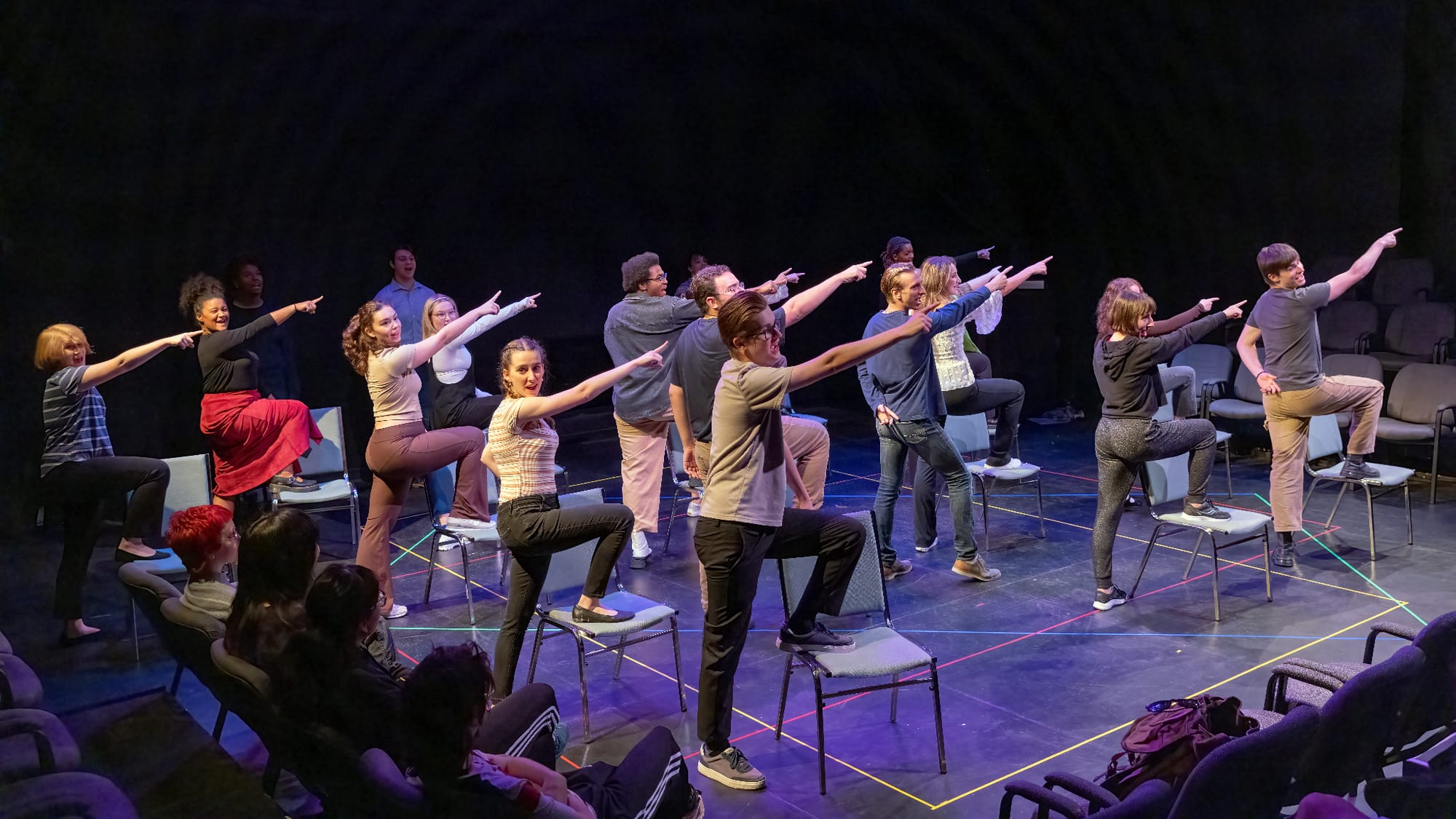
The excellent lighting, by Tyler Lessin, was at times dramatic and other times understated, particularly effective at the show’s opening, a slow rise from near darkness to light, and its close, when it exactly reversed to cap off a tidy final scene. The music direction was crisp and strong through what must have been an impossibly hectic two weeks. The players worked so well together that they all deserve to be named; in addition to those noted above, they included (in order of program listing) Joshua Duran, Lucas Shroyer, Von Love, Cat Sanders, Ali Thanscheidt, Gabe Cornwell, Hayley Loya, Ava Rivera, Kaete Mokrynski, Elena Cianciolo, Xavier Huffman, Grace Ryan, and Ava Wiechman.
Correction: This story was updated on October 23, 2024. One of the songs in "Express" mentioned within this review is "A Missed Connection," not "A Mixed Connection." We regret the error.
Freelancer Anne Welsbacher edits Well-Worded and writes plays, fiction, nonfiction, and book and theatre reviews.
Support Kansas arts writing
The SHOUT is a Wichita-based independent newsroom focused on artists living and working in Kansas. We're partly supported by the generosity of our readers, and every dollar we receive goes directly into the pocket of a contributing writer, editor, or photographer. Click here to support our work with a tax-deductible donation.
❋ Derby man has the kind of voice that turns heads — and chairs
❋ Socializing while sober: how some Wichitans are cultivating alcohol-free communities
❋ As a small creative business closes, the owner mourns
❋ Painting through it: Autumn Noire on 20 years of making art
❋ How a guy from Wichita resurrected 'Dawn of the Dead'
❋ Bygone Friends University museum housed curious collections
More theater coverage from the SHOUT
 The SHOUTEmily Christensen
The SHOUTEmily Christensen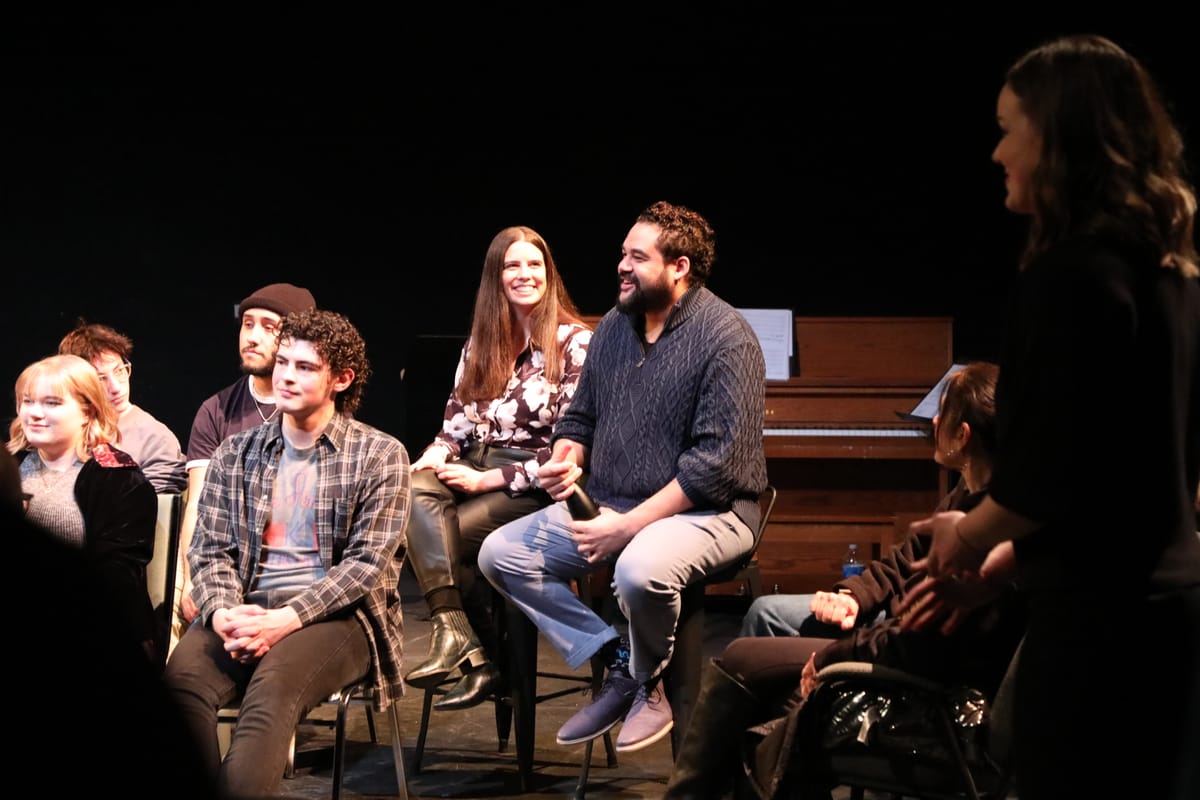
 The SHOUTTeri Mott
The SHOUTTeri Mott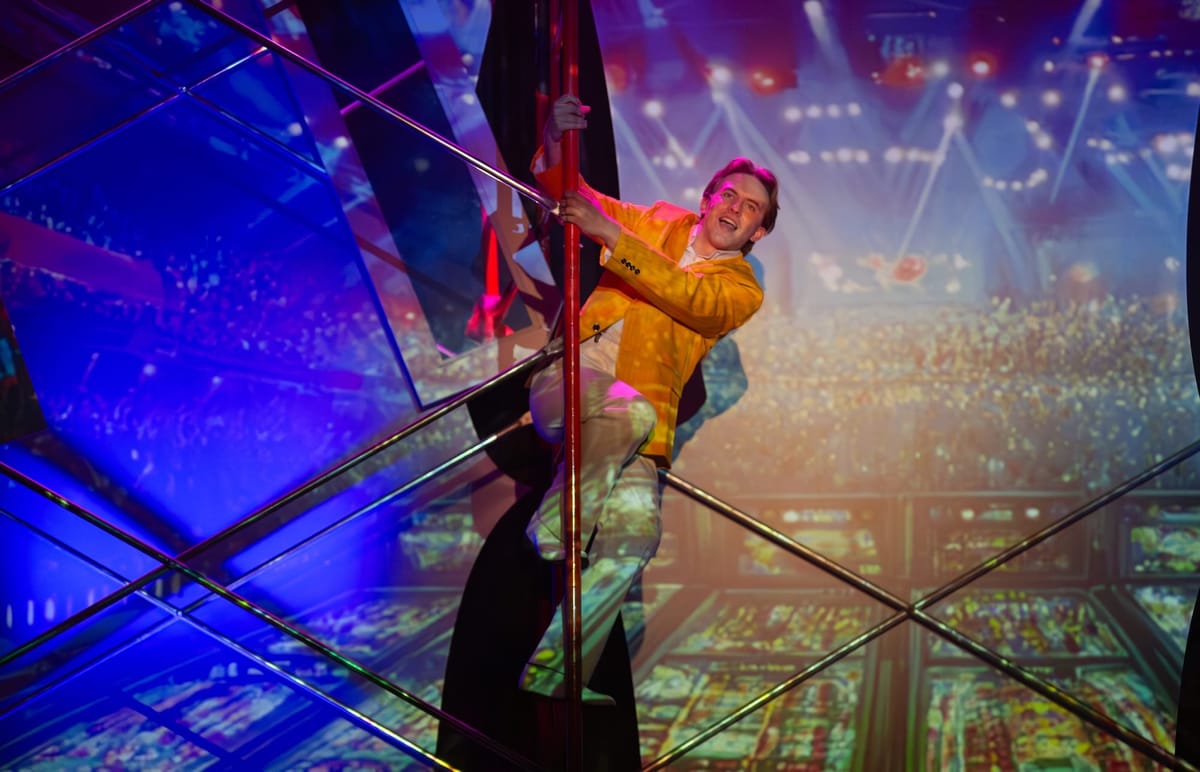
 The SHOUTLeslie Coates
The SHOUTLeslie Coates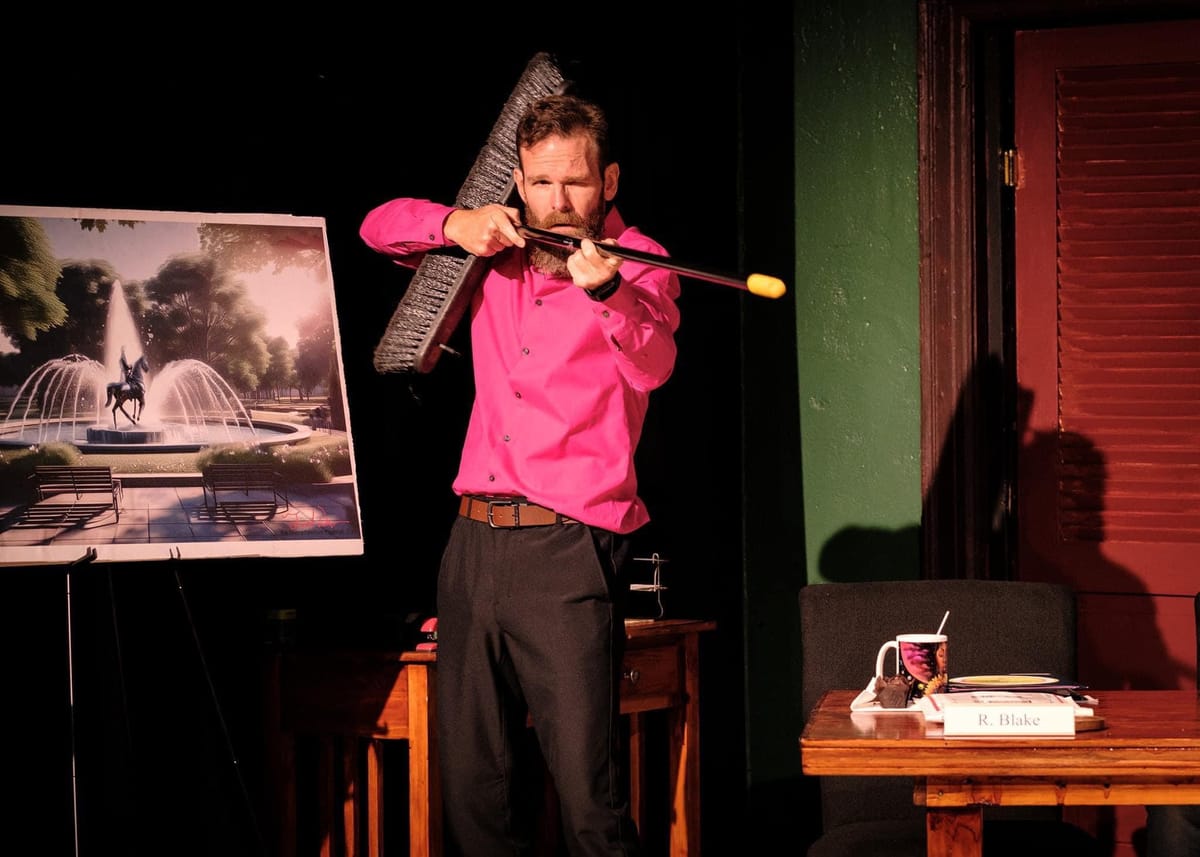
 The SHOUTLori Brack
The SHOUTLori Brack